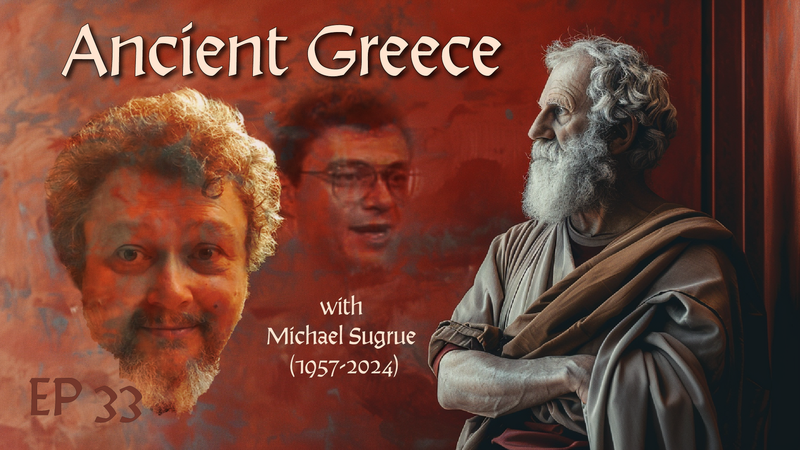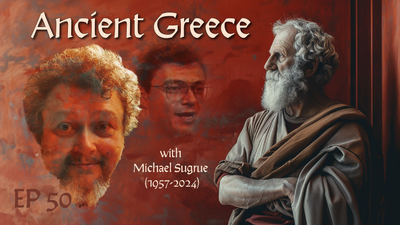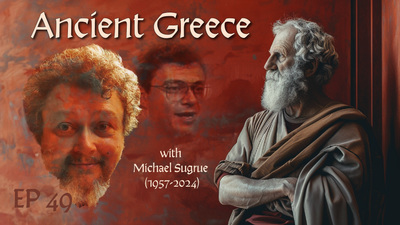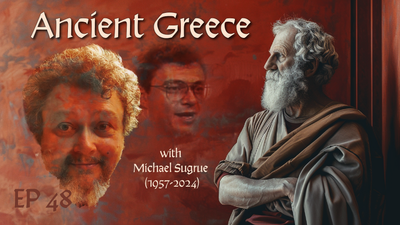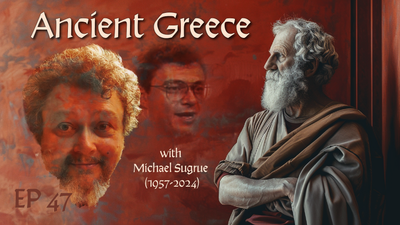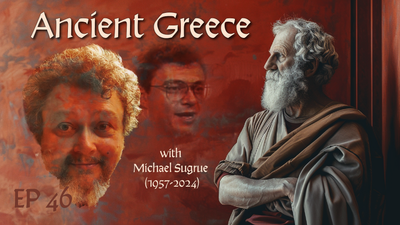In a world saturated with distractions and constant noise, Plato’s philosophy draws us back to a fundamental truth—the value of an examined life. Imagine Socrates walking through the streets of Athens, his thoughts fixed not on status or power but on a commitment to understanding himself. This week, we explore the profound idea that true wisdom begins not with grand answers but with humble, persistent questioning. For Plato, self-examination isn’t a once-in-a-lifetime reflection but an ongoing practice—an art form woven into daily living.
Consider what it means to live an examined life today. With pressures to achieve, perform, and project an ideal self-image, few are encouraged to pause and look inward. Plato reminds us that the value of life emerges from reflection: looking at one's choices, beliefs, and motivations with an open, critical eye. Socrates’ unwavering commitment to this pursuit led him to challenge not only his assumptions but those of society at large. His journey calls us to ask, "What choices have we examined, and what truths have we overlooked?"
Join us on planksip.org, where we aim to revive this ancient tradition in a modern setting. Imagine a community centered on the ideals that Plato cherished, where each individual’s pursuit of wisdom contributes to a shared journey of discovery. Let’s bring the personification of Plato to life in ourselves—a practice worth imagining and sharing.
From the Archives of Ancient Greece: Featuring Dr. Michael Sugrue
Dr. Michael Sugrue dives deep into the nuances of Socrates' choice to live by the philosophy he taught. In Apology, Socrates faces a trial that could lead to his death, yet he stands unwavering, defending his dedication to seeking truth over safety or acceptance. Dr. Sugrue highlights how, for Socrates, the examined life is more than a slogan; it’s an active, deliberate commitment that involves constant self-scrutiny and the courage to ask difficult questions, regardless of the cost.
This approach is radical by modern standards. Imagine standing before a crowd and challenging not only popular beliefs but also your own biases and misconceptions. Socrates didn’t just preach self-examination—he embodied it in a way that even today’s most critical thinkers would find daunting. His trial is a striking reminder of what it means to live authentically, without compromise. Dr. Sugrue’s analysis brings to light how this dedication turned Socrates into a symbol of intellectual bravery and moral conviction, a legacy that continues to inspire those who dare to pursue truth.
We invite you to join us on planksip.org to explore this ideal further. Let’s consider how we might apply Socrates’ courage in our own lives. Whether through daily reflections or deep philosophical discussions, there’s a space waiting for those who want to practice self-examination in meaningful ways.
Insights from the Dialogues: Quoting Plato
In Apology 28e-30a, Socrates famously declares, “The unexamined life is not worth living.” While it’s a phrase we often hear, few take time to unpack its real significance. Socrates isn’t just suggesting self-reflection is beneficial—he’s making it a condition for life’s worth. Imagine questioning each action, choice, and belief as Socrates did, not with condemnation but with curiosity. For Socrates, the purpose of life wasn’t to avoid failure but to learn and grow through each experience.
One could say that Socrates was Athens' first “life coach,” but not in the motivational sense we might expect. Instead, he pushed his fellow citizens to confront uncomfortable truths, urging them to look beyond their assumptions. Socrates’ statement about the examined life suggests that value comes not from the achievements we collect but from the wisdom we gain in the process. By engaging in dialogue and scrutinizing each answer, we can uncover layers of understanding that help us lead richer, more intentional lives.
Plato Re-Imagined brings this dialogue into focus. Join us in our exploration of self-examination as a way to discover deeper meaning. By participating in conversations on planksip.org, you’re contributing to a dialogue that Socrates might have envisioned—where wisdom isn’t just read about, but actively pursued.
Chance and Fate: Exploring Ancient Games
In ancient Greece, games like knucklebones and dice were more than entertainment—they were symbols of fate, mirroring life’s unpredictability. When Greeks played these games, they engaged in a form of introspection, each roll embodying a choice, a chance, a moment of fate. Just as Socrates examined life’s meaning, these games invited players to reflect on their own luck, strategy, and the nature of control. A well-played game wasn’t simply a victory; it was an exercise in accepting life’s capriciousness with wisdom and grace.
Explore the Mystical World of Astraguli: Ancient Games of Chance with Cultural Significance.
Consider today’s games of chance, where we often rely on strategies or “luck.” In ancient times, however, games were metaphorical exercises in philosophy. Knucklebones, for example, were cast as a form of ritual that underscored life’s uncertainties. By accepting the outcomes without complaint, players mirrored Socrates’ acceptance of fate at his trial. Plato might argue that these games helped develop a form of mental resilience, teaching the value of introspection over impulsiveness—a quality essential to the examined life.
On planksip.org, we’re taking this concept forward, exploring ways to approach our own “games” in life with a Socratic spirit. Here, you’ll find a community reflecting on the choices, consequences, and reflections that life presents. Let’s play the game of introspection together, with Socrates as our guide.
Virtues Revisited: Practical Lessons for Today
This week’s focus is on prudence, a virtue often overshadowed by more visible traits like courage or charisma. In Plato’s view, prudence represents careful, thoughtful decision-making rooted in self-knowledge. Imagine you’re facing a choice with potentially life-changing consequences—prudence is the virtue that encourages you to reflect before acting, balancing your desires with wisdom. It’s the practiced ability to foresee consequences and align actions with long-term values, making it foundational for anyone striving for an examined life.
Plato saw prudence as essential for the philosopher. Socrates, the most prudent of all, practiced this virtue daily by questioning and reflecting rather than rushing to judgment. Today, prudence can mean pausing to consider the implications of a career move, relationship decision, or ethical stance. It’s about taking the time to examine our motives and making choices that align with our values. This kind of wisdom is rare but vital, and Plato’s dialogues provide a roadmap for cultivating it.
On planksip.org, we invite you to share your experiences with prudence. How do you practice this virtue? Join the conversation and explore practical insights on how ancient wisdom can be woven into the fabric of our daily lives. Together, we can build a modern community of thinkers dedicated to meaningful living.
Engage with Us: Reader’s Corner
Self-examination is more than just a philosophical ideal—it’s a lifelong practice. What does it look like in today’s fast-paced world? How do you take time to examine your actions, beliefs, and relationships? We invite you to reflect on these questions and share your insights with us. Do you find value in journaling, meditation, or conversations with friends? How do you uncover deeper truths about yourself and make sense of your journey?
On planksip.org, our Reader’s Corner is an open space for individuals to discuss these practices. Let’s bring Socratic dialogue into our lives, fostering a community that values reflection, wisdom, and growth. Selected reflections will be featured in upcoming issues, creating an ongoing conversation that honors Plato’s legacy in a way that feels personal and relevant.
Closing Reflection: Socrates’ Enduring Legacy
Socrates’ unwavering commitment to the examined life is a timeless invitation to each of us. His life demonstrates that true wisdom comes not from certainty but from an openness to questioning and self-reflection. In embracing the unknown and committing to honest self-examination, we discover deeper insights and find a sense of purpose that goes beyond achievements or accolades.
As we journey through Plato’s dialogues together, let us remember that the pursuit of wisdom is a shared path, enriched by dialogue and reflection. Socrates’ mission lives on in every question we ask, every assumption we challenge, and every choice we make in the spirit of self-awareness. May we all carry a bit of his legacy with us—choosing, as he did, to live lives worthy of examination.
Thank you for being part of Plato Re-Imagined and our community on planksip.org. We look forward to exploring more of these timeless lessons together in our quest for a thoughtful, meaningful life.

Plato Re-Imagined
This course offers 32 comprehensive lectures exploring most of Plato's dialogues. These lectures guide students toward a consilient understanding of the divine—a concept that harmonizes knowledge across disciplines and resonates with secular and religious leaders. As a bonus, Lecture #33 focuses on consilience, demonstrating how different fields of knowledge can converge to form a unified understanding.

